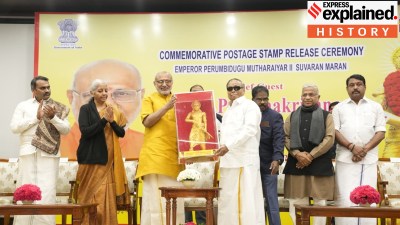Stating that “it is disquieting to note that there are serious lapses in the enforcement” of the Sexual Harassment of Women at Workplace (Prevention, Prohibition and Redressal) Act, 2013, popularly known as PoSH Act, almost a decade into its enactment, the Supreme Court Friday issued a slew of directions to ensure its effective implementation.
A bench of Justices A S Bopanna and Hima Kohli was deciding an appeal filed by Aureliano Fernandes, a former Head of the Department of Political Science at the Goa University, against the Bombay High Court order upholding his dismissal from service on sexual harassment charges.

Allowing the appeal by Fernandes and sending the matter back to the Complaints Committee, the court flagged the report in a “national daily newspaper” that 16 of the 30 national sports federations don’t have an Internal Complaints Committee as stipulated under PoSH.
Incidentally, an investigation by The Indian Express on May 4 had revealed that half of the national sports federations don’t have sexual harassment panels as per law.
The Indian Express had found that five federations, including wrestling, don’t have an ICC; four don’t have the stipulated number of members; another six lacked the mandatory external member and one federation had two panels but none with an independent member.
Writing for the bench, Justice Kohli referring to the report (without naming the newspaper) said: “This is indeed a sorry state of affairs and reflects poorly on all the state functionaries, public authorities, private undertakings, organizations and institutions that are duty bound to implement the PoSH Act in letter and spirit”.
The court underlined how “being a victim of such a deplorable act not only dents the self-esteem of a woman, it also takes a toll on her emotional, mental and physical health.” Many of them are “reluctant to report such misconduct” and even “drop out from their job.”
Story continues below this ad
Behind this, the court said, was the “uncertainty” over who to approach under the Act and the “lack of confidence in the process and its outcome.”
That’s why, the court said, PoSH won’t ensure “dignity and respect” for women in the workplace until “there is strict adherence to the enforcement regime and a proactive approach by all State and non-State actors”.
“If the authorities/managements/employers cannot assure (women) a safe and secure work place, they will fear stepping out of their homes to make a dignified living and exploit their talent and skills to the hilt”, said the court.
Therefore, to “fulfil the promise that the PoSH Act holds out to working women all over the country,” the court issued some key directions:
Story continues below this ad
It asked the Centre, states and Union Territories “to undertake a time-bound exercise” to verify whether all Ministries, Departments, Government organisations, authorities, Public Sector Undertakings, institutions, bodies, have internal committees “strictly” in terms of PoSH Act.
The court said that information regarding the constitution and composition of these committees, e-mail IDs and contact numbers of the designated person(s), the procedure prescribed for submitting an online complaint, the relevant rules, regulations and internal policies are made readily available on the website of the concerned authority.
The bench directed that “a similar exercise be undertaken by all statutory bodies of professionals at the apex level and the state level (including those regulating doctors, lawyers, architects, chartered accountants, cost accountants, engineers, bankers and other professionals), by Universities, colleges, educational institutions, and by government and private hospitals/nursing homes.”
The court called for “immediate and effective steps” by the authorities to “familiarise” committee members with their “duties and the manner in which an inquiry ought to be conducted.”
Story continues below this ad
It also asked them to regularly conduct orientation programmes, workshops, seminars and awareness programmes to upskill committee members and to educate women employees and women’s groups on the Act.
To that effect, the bench directed the National Legal Services Authority and State Legal Services Authorities to develop modules to conduct workshops and organise awareness programmes to sensitise employers, employees and adolescent groups to the provisions of the Act.
It also asked the National Judicial Academy and the State Judicial Academies to include in their annual calendars, orientation programmes, seminars and workshops for capacity-building of members of complaint committees in the High Courts and District Courts.
It directed that the order be forwarded to Secretaries of all central ministries and Chief Secretaries of all states and union territories for compliance.
Story continues below this ad
It agreed with the petitioner’s counsel Senior Advocate Bishwajeet Bhattacharya that the entire proceedings were closed in just 39 days and that the principles of natural justice were grossly violated.
The Bombay High Court had dismissed Fernandes’s plea against an order of the Executive Council of Goa University (Disciplinary Authority) which dismissed him from services and disqualified him from future employment. The top court set aside this High Court order noting procedural lapses in inquiry proceedings and violation of principles of natural justice.









